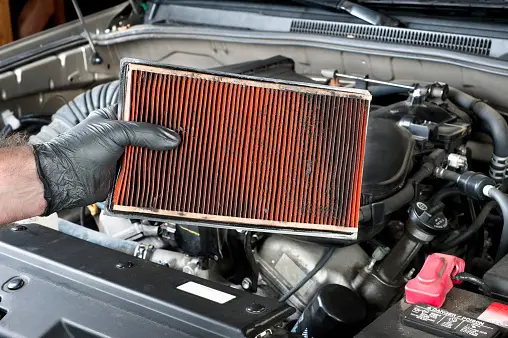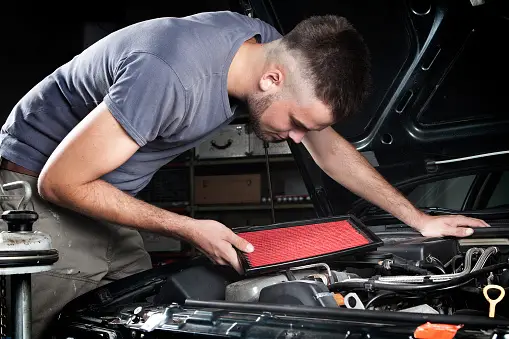October 17, 2024
Is it good to change air filter in car?
Yes, it is generally recommended to change the air filter in your car regularly. The air filter plays a crucial role in maintaining the health and performance of your vehicle’s engine. It is responsible for filtering the air that enters the engine, removing dust, dirt, pollen, and other particles that could potentially harm the engine’s internal components.
Over time, the air filter becomes clogged with debris, reducing its effectiveness and restricting the airflow to the engine. This can lead to a decrease in fuel efficiency, power loss, and potentially even engine damage. By regularly changing the air filter, you ensure that clean air can flow freely into the engine, promoting optimal performance and fuel economy.
The frequency of air filter changes can vary depending on your driving conditions. It’s a good practice to consult your car’s owner’s manual for specific recommendations from the manufacturer. However, a general guideline is to replace the air filter every 12,000 to 15,000 miles (19,000 to 24,000 kilometers) or once a year, whichever comes first. If you frequently drive in dusty or polluted environments, you may need to change the air filter more frequently.
Changing the air filter is a relatively simple and inexpensive maintenance task that you can often do yourself or have done during routine vehicle servicing. It’s a small investment that can have a positive impact on your car’s performance, longevity, and overall driving experience.

What happens to a car with a bad air filter?
A car with a bad or clogged air filter can experience several negative effects on its performance and overall health. Here are some of the potential consequences:
- Reduced Fuel Efficiency: A clogged air filter restricts the airflow to the engine, causing an imbalance in the air-fuel mixture. This can lead to incomplete combustion, resulting in reduced fuel efficiency. Your car may require more fuel to achieve the same level of performance, leading to decreased miles per gallon (MPG).
- Power Loss: The restricted airflow caused by a bad air filter can limit the amount of oxygen reaching the engine. Oxygen is essential for the combustion process, and inadequate oxygen supply can result in reduced power output. You may notice a decrease in acceleration and overall engine performance.
- Engine Misfires: Insufficient air supply to the engine can lead to incomplete combustion and engine misfires. Misfires can cause rough idling, a decrease in power, and even potential damage to the engine if left unaddressed.
- Increased Emissions: A clogged air filter can disrupt the air-fuel mixture, leading to incomplete combustion and higher emissions of pollutants such as carbon monoxide (CO) and hydrocarbons (HC). This can result in your vehicle failing emissions tests and negatively impact the environment.
- Potential Engine Damage: If the air filter is severely clogged, it can allow dirt, debris, and contaminants to bypass the filter and enter the engine. These particles can cause damage to the engine’s internal components, such as the cylinders, piston rings, and valves. Over time, this can lead to reduced engine performance and increased wear and tear.
- Reduced Longevity: A bad air filter can contribute to increased engine wear, as contaminants can enter the engine and cause damage. By neglecting to change the air filter regularly, you risk reducing the overall lifespan of your vehicle’s engine and potentially incurring costly repairs.
It’s important to note that the severity of these effects can vary depending on the degree of air filter clogging, the driving conditions, and the specific make and model of your car. Regularly inspecting and replacing the air filter as recommended by the manufacturer can help prevent these issues and keep your car running smoothly.

How often should you change the air filter in your car?
The frequency of air filter changes can vary depending on several factors, including the make and model of your car, driving conditions, and the type of air filter being used. It’s best to consult your vehicle’s owner’s manual for specific recommendations from the manufacturer. However, here are some general guidelines:
- Every 12,000 to 15,000 miles (19,000 to 24,000 kilometers) or once a year: This is a common interval recommended for changing the air filter. It provides a good balance between maintaining optimal performance and avoiding unnecessary filter replacements.
- More frequently in dusty or polluted environments: If you frequently drive in areas with dusty roads, construction sites, or polluted environments, the air filter may become clogged more quickly. In such cases, it’s advisable to inspect the air filter more frequently and change it as needed.
- Visual inspection: Regardless of mileage or time, it’s a good practice to visually inspect the air filter regularly. If you notice a significant buildup of dirt, dust, or debris on the filter, or if it appears damaged or worn out, it’s a good indication that it needs to be replaced.
Ultimately, following the manufacturer’s recommendations for air filter replacement is crucial. They have specific knowledge of your car’s design and requirements. Regularly changing the air filter helps ensure that clean air can flow freely into the engine, promoting optimal performance, fuel efficiency, and the longevity of your vehicle’s engine.
Will my car run better without air filter?
Running your car without an air filter is not recommended, as it can lead to more harm than good. The air filter’s main job is to prevent dirt, dust, and debris from entering the engine. If these particles enter the engine, they can cause damage to critical components, reducing engine performance and potentially leading to costly repairs.
In the short term, removing the air filter may allow for slightly better airflow, which can temporarily improve performance, but the risk of engine damage far outweighs any potential gains. Over time, the engine’s efficiency and longevity will suffer, as contaminants can affect fuel combustion, leading to rough running, reduced power, and increased wear and tear.
It’s best to ensure your air filter is clean and properly maintained rather than running without one.
